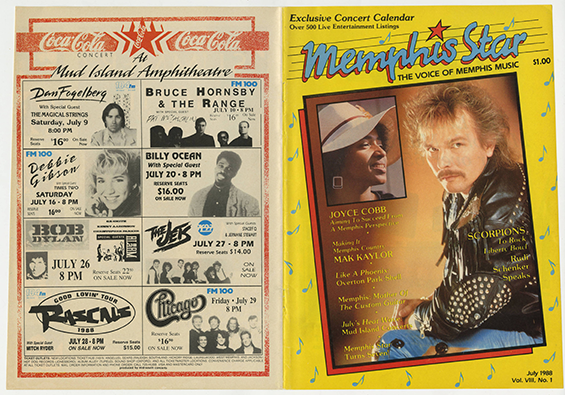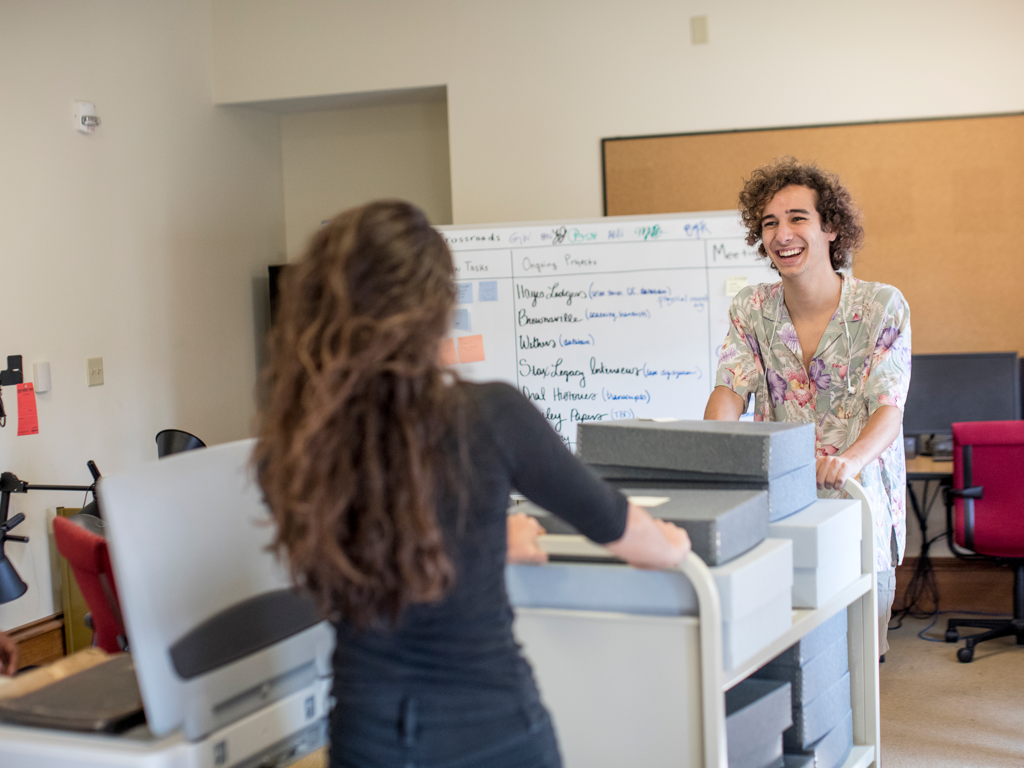It was a dark time in the history of Memphis music . . .
“At least that’s the traditional narrative,” says Dr. John Bass, director of the Mike Curb Institute for Music at Rhodes. “The years after Stax and before the modern resurgence.”
But there was still plenty of music being made in Memphis, says Bass, and local musicians and others in the industry read all about it in the Memphis Star, a music publication in print during the 1980s and early 1990s. The Memphis Star contained concert schedules, who was recording and in which studio, and other industry news. Bass received a collection of Memphis Star issues from a friend, which he then eagerly brought to the Rhodes digitization team, a group of students helping to preserve Memphis history through a range of digitization projects.
Patrick Smith ’18, a double major in molecular biology and music (he plays clarinet), began the work of reading, organizing, and digitizing the Memphis Star copies through an internship with the Curb Institute.
“There are gems in there that no one had any idea about,” he says.

Smith came to the Rhodes digitization work through his interest in music, which he started out minoring in—but which soon took on much more importance as he got to know Memphis better. Because of his work with the Curb Institute and his involvement with the Memphis Star collection, he has begun thinking about a contemporary approach to his senior clarinet recital, incorporating some of what he’s learned.
“At Rhodes, it’s an expectation that you don’t just study one thing without hearing about other things,” Smith says. “It didn’t take long to get integrated with the community—my first semester here I helped host a Manassas High School band reunion. There’s so much here if you just know where to look for it.”
The digitization of the Memphis Star is nearly finished and will become available for public research in the near future. Rhodes students have already begun using the archive for their own research projects, says Bass. Smith figures he’ll be able to wrap up his digitization work by the time he graduates, and be able to train his successor, as well.
“The work I’ve done here, the people I’ve met, I’ll take that with me,” Smith says. “I have also developed an interest in history and archiving. It’s a skill set that I’ll be able to use wherever I end up next.”
— By Leanne Kleinmann
